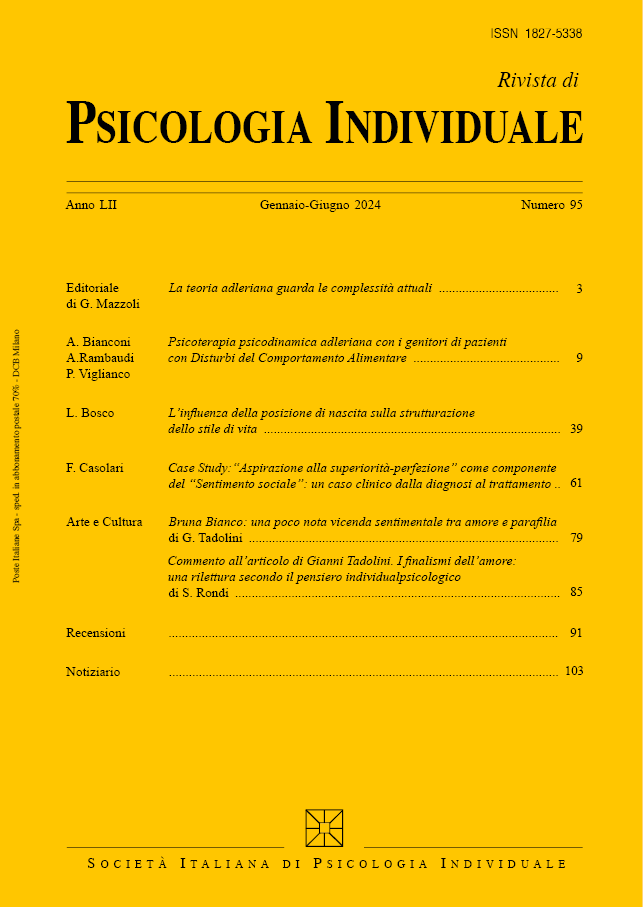Historical Aspects of I.P. in Europe
Keywords:
individual psychology, freudian psychoanalysis, francesco parentiAbstract
Horst Gröner's article provides a historical overview of the spread and development of Individual Psychology (IP) in Europe, with particular focus on the period before and after World War II. At the outset, Gröner highlights the difficulties in reconstructing a complete history of the discipline, due to the scarcity of documents and the subjectivity of testimonies. The first chapter describes the expansion of IP from Vienna, where Alfred Adler founded his school in 1911, to the formation of over 50 European groups between the 1920s and 1930s, despite Nazi repression. The second chapter analyzes the complex events surrounding the founding of the International Association for P.I., which, although formally established in Zurich in 1954, had already undergone organizational attempts in the 1920s and 1930s, especially in Munich. Gröner highlights internal conflicts, bureaucratic difficulties, and geopolitical influences that prevented the organization from establishing a stable structure before the war. The third chapter explores the relationship between IP and Freudian psychoanalysis, comparing the American evolution – more pragmatic and pedagogically oriented – with the European one, which was more analytical and deeply influenced by the dialogue with psychoanalysis, especially in Germany, Austria, and Italy. Finally, the author dedicates the last part to Francesco Parenti, a central figure in the development of IP in Italy. Founder of the Italian Society of Individual Psychology and the Alfred Adler Institute in Milan, Parenti represents for Gröner an example of a ‘European’ in the most cultural and intellectual sense of the term, capable of combining the Adlerian tradition with openness to other approaches to depth psychology






